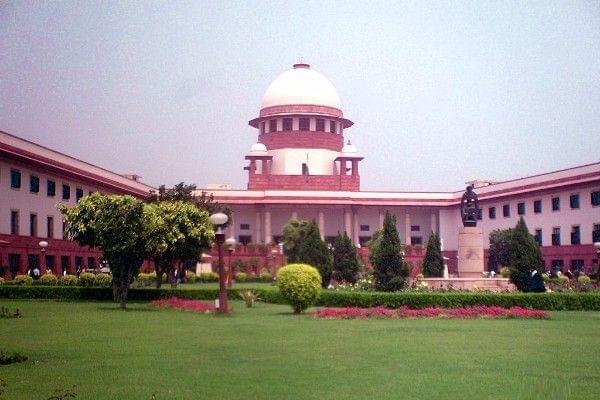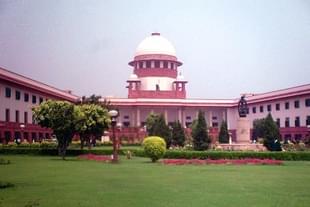Politics
A Mediated Ayodhya Verdict? SC Should Get On With Job And Not Keep Kicking The Can Down The Road
R Jagannathan
Mar 07, 2019, 11:49 AM | Updated 11:48 AM IST
Save & read from anywhere!
Bookmark stories for easy access on any device or the Swarajya app.


The five-judge Supreme Court bench hearing the Ram Janmabhoomi case seems stuck on the idea of mediation even though most Hindu parties think this is a way of delaying the verdict further. Yesterday (6 March), the bench asked for names of potential mediators from all parties, but it is doubtful if any mediated verdict imposed on unwilling petitioners will have the same legal effect as a judicial outcome.
An out-of-court compromise where all the litigating parties agree to a mediated settlement is one thing, but a court-imposed mediation that may or may not be acceptable to some parties cannot have the finality of a legally-binding judgement. If the objecting parties, or even the parties that are willing to go along with mediation, find the final result of mediation unacceptable, can the Supreme Court then refuse to hear their case?
One petitioner, Subramanian Swamy, has already indicated that he will file his own petition on the question of the right to pray, and this case will have to be heard even if the mediated verdict goes against the Hindu parties. It is only if the verdict goes in favour of the Hindu parties that Swamy may not press for his petition. Put simply, only one kind of compromise is acceptable to the Hindus, where the disputed land is given over to the Ram Mandir, and the mosque being given land elsewhere in the area.
This, in essence, is what Rajmohan Gandhi had suggested some weeks ago, though he added needless caveats to it by calling for a Hindu apology for bringing down the Babri Masjid illegally. If the litigants, who may have had nothing to do with the demolition of the Babri, have to apologise for something some others may have done in December 1992, by the same logic today’s Muslims can also be asked to apologise for the temple destruction by past Muslim rulers. But Rajmohan Gandhi’s formula did not cut any ice with those who simply oppose the idea of building a Ram temple on the site.
If the compromises offered by Rajmohan Gandhi, and previous attempts by Sri Sri Ravi Shankar, the late Kanchi Shankaracharya, and many others also failed, one wonders what kind of purchase a Supreme Court-appointed mediator will find among the litigants.
Already, there is talk that the mediations, if finally mandated by the bench, will be held in secret, and no party will be allowed to disclose the ideas being kicked around. The media may be gagged until a formula is reached. But this is precisely the problem. The litigants are not litigating on behalf of their own narrow interests, but on behalf of the whole of Hindu society. An in-camera deal that does not have broader sanction will not pass muster. If a compromise fails to satisfy either Hindu or Muslim public opinion, opposition to the deal will begin soon. The court will have to get back into the game.
The real problem with the bench is this: it seems to be worried that any verdict it may offer will not be acceptable to someone or the other. This is why it is probably trying to delay things, so that any verdict comes only after the general elections, and maybe long after the elections are over.
Justice S A Bobde, who will be the next Chief Justice when current incumbent Ranjan Gogoi retires this November, is taking the lead on mediation, probably because if the case is not settled now, it will land on his lap.
The bench cannot satisfy both parties no matter how it decides. It has to summon up the courage and deliver its verdict as soon as possible. Kicking the can down the road is not an option any more.
Jagannathan is former Editorial Director, Swarajya. He tweets at @TheJaggi.





